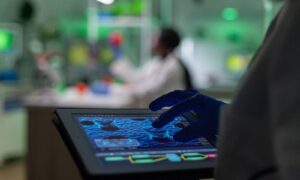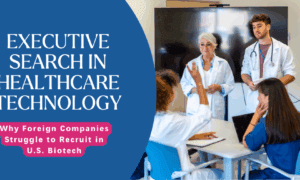As the pharmaceutical industry faces mounting pressure to bring new treatments to market faster, artificial intelligence is emerging as a transformative force in drug discovery. Despite the explosion of data and the proliferation of specialized tools and computational models, researchers often struggle to connect insights across disparate resources—a bottleneck that slows innovation and drives up costs.
At the forefront of addressing this challenge is Xuefei Gao, co-founder and COO of Ascent Bio. Leveraging her experience in biotech venture investment and commercialization, along with an MBA and MPH from Yale, Gao is pioneering an AI system designed not merely to analyze data, but to think and act like a scientist. Her vision: an AI scientist that collaborates seamlessly with researchers, reasons through complex contexts, selects the most appropriate tools for each task, and ultimately accelerates the journey from discovery to therapeutics.
From Biotech Investment to Scientific Reinvention
For years, the biotech industry has been flooded with data. High-throughput screening, expansive compound libraries, and both public and private databases offered resources for research. Yet, for many in the field, the pace of innovation remained frustratingly slow.
During her career in biotech venture capital, she observed how even the most promising companies struggled to meaningfully improve efficiency in drug design. “Scientists have access to more information than ever before,” Gao explains. “Yet the pharmaceutical industry remains one of the most inefficient sectors. Innovations emerge in modalities and new targets, but the 10-year timelines, 10% success rates, and enormous investments are still treated as inevitabilities rather than challenges to be solved.”
Her experience gave her a front-row view of the problem and ultimately set her on the path to co-founding Ascent Bio, with a mission to integrate scientific reasoning and computational power to accelerate drug discovery.
The Birth of Ascent Bio
Gao’s journey toward founding Ascent Bio began during her time at Yale where she pursued an MBA and MPH after several years in biotech investment. There, she got the chance to work with several Yale spinouts on business strategy and commercialization ,and gained firsthand exposure to cutting-edge research shaping the future of molecular design. Collaborating closely with researchers and entrepreneurs, she began to imagine a new kind of AI system—one that could think, hypothesize, and iterate like a scientist, rather than simply automate laboratory processes.
“Most AI tools in biotech handle narrow functions—analyzing data, predicting molecules, or screening molecules,” she says. “But what if we could build something that understands the logic of science and drug design itself? Not just a calculator, but a collaborator.”
In partnership with AI researchers from a leading Yale lab, Gao co-founded Ascent Bio to bring this vision to life. The company’s mission is ambitious: to develop an AI system capable of reasoning across complex scientific questions, integrating diverse datasets, and handling sophisticated computational tasks to deliver actionable insights that empower scientists.
Designing an AI That Thinks Like a Scientist
Ascent Bio’s approach focuses on modeling the scientific reasoning process and creating the specific context needed for problem-solving, enabling its AI to simulate how researchers tackle complex tasks using the right tools. It also integrates frontier AI models, computational tools, literature, experimental datasets, and domain-specific knowledge.
The company has already drawn recognition from both academia and industry. It received Yale’s 2024 Faculty Innovation Award for its novel approach to AI in biopharma and was selected for Merck’s Digital Science Studio, a program that supports cutting-edge startups redefining digital drug discovery.
Bridging Science and Strategy
For Gao, bridging science and business has always been part of her DNA. Before co-founding Ascent Bio, she worked in biotech venture investment, investing in early to growth-stage biotech companies, advising founders, and helping startups navigate commercialization and capital strategy. This dual perspective—understanding both the promise of innovation and the structural barriers that slow it down—now shapes her leadership at Ascent Bio.
As COO, Gao oversees product strategy, partnerships, and operations, translating scientific potential into practical, scalable solutions that meet the real-world needs of the pharmaceutical industry.
“AI in biotech can’t operate in a vacuum,” she notes. “It has to work hand-in-hand with the realities of research, the ways scientists actually work, and the paths to industry adoption.” Her cross-disciplinary expertise ensures that Ascent Bio’s AI tools are not only cutting-edge but also seamlessly integrated into the workflows of scientific discovery.
A Growing Voice in Biotech Innovation
Beyond her role with Ascent Bio, Gao has become an active voice in the broader biotech and innovation ecosystem. She has spoken at events hosted by Nucleate, the Yale Biotech Club, and Startup Yale, sharing insights on the intersection of AI, entrepreneurship, and scientific discovery.
She was also invited to serve as a judge for the Yale School of Management’s Donor-Funded Entrepreneurial Awards, an accolade she once earned as a student. For Gao, this full-circle moment reflects not only her personal trajectory but also the growing recognition of AI-driven life science innovation within academia.
The Future of AI in Science
The biotech world has always been driven by curiosity—the relentless pursuit of understanding life at its most fundamental level. As AI becomes increasingly embedded in laboratory workflows, the focus is shifting from isolated tools or single models to intelligent augmentation, where AI seamlessly collaborates with scientists to enhance discovery.
Ascent Bio sits at the center of this shift, challenging conventional assumptions about what AI can contribute to the creative, reasoning-intensive work of science. Gao and her team’s work reimagines drug design workflows through a digital lens, suggesting a future where AI doesn’t replace scientists but expands their capacity to think, discover, and innovate.
In an industry where the stakes are measured in lives, time, and billions of dollars, the promise of AI-driven collaboration extends far beyond merely accelerating research. By enabling scientists to work more efficiently, extract actionable insights from cutting-edge computational models and tools, and seamlessly integrate complex data streams and workflows, these systems have the potential to transform the efficiency, accuracy, and scope of drug discovery. Gao’s journey illustrates how cross-disciplinary vision, strategic insight, and technological ambition can converge to create tools that do more than automate tasks—they redefine the very process of scientific discovery.
Read More From Techbullion



































